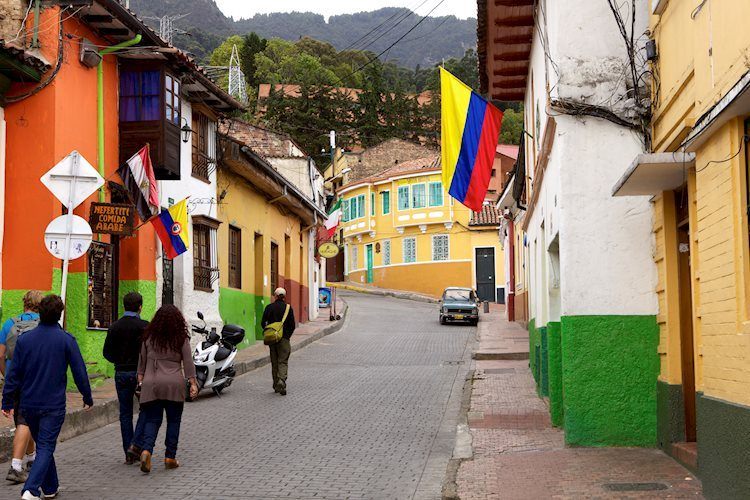Turkish President Recep Tayyip Erdogan has been involved in supporting jihadists in Syria’s civil war since 2011, while the Turkish military has conducted three cross-border operations in the war-torn country in recent years. Turkey’s primary goal is to prevent the creation of another Kurdish autonomous enclave in northern Syria, which would mean that the dream of an independent Kurdistan would have been fulfilled by 2/3, leaving only the creation of an autonomous Kurdish state within Turkey. .
In this light, it remains a mystery why Erdogan is targeting the forces of Syrian President Bashar al-Assad instead of collaborating with the Syrian regime against the Kurdish militias on Syrian soil. The anger and growing tensions between Erdogan and Assad have not been resolved and it seems that a full-scale war between Turkey and Syria may be just around the corner, taking into account the tragic situation in which Turkey finds itself.
Former Turkish Foreign Minister Yasar Yakis said in an article published in Arab News on Monday that Erdogan was considering new military operations in Syria, possibly in a bid to attract nationalist votes ahead of the 2023 general election, as recent polls show. that Erdogan has the lowest acceptance since his party came to power in 2002. Turkey’s ruling Justice and Development Party (AKP) has entered into an electoral alliance with the Nationalist Movement Party (MHP), led by Gray Wolves leader Devlet Bahceli in February 2018 in the run-up to the June 24, 2018 general elections. The MHP, along with pro-Islamist AKP supporters, are the main proponents of Erdogan’s expansion in the region.
On October 26, the Turkish government approved a proposal to extend the army’s mandate to conduct cross-border operations in Syria and Iraq for two more years. The MHP with 48 seats voted in favor of the proposal, while the Republican People’s Party of the main opposition with 135 seats and the pro-Kurdish People’s Democratic Party (HDP) with 56 seats voted against. The Turkish parliament first approved the proposal in 2013 in support of the international campaign against the Islamic State (ISIL) and has been renewed several times since.
“Operation Euphrates Shield” in 2016 was Turkey’s first ground intervention in Syria since the start of the Syrian crisis in 2011. The Turkish Free Syrian Army alliance captured the ISIL-controlled Syrian border town of Jarablus and the Kurds withdrew east of the Euphrates. . Erdogan said at the time that the main goal of the operation was to stop the Kurdish People’s Protection Units (YPG), the Syrian branch of the outlawed Kurdistan Workers’ Party (PKK), from occupying more cities along Turkey’s border with Turkey. Turkey and Turkish-backed Syrian opposition and jihadists attacked Kurdish positions west of Azaz and occupied an area of Afrin in 2018. The Turkish army continued to target Kurdish forces along its border by attacking supported the US Syrian Democratic Forces (SDF), an armed group made up of fighters and the YPG and recognized by Turkey as a terrorist group linked to the PKK. Erdogan convinced then-US President Donald Trump about the third operation in Syria. After his telephone conversation with Erdogan, Trump shockingly announced the withdrawal of US troops from northern Syria. In a statement from the White House, Press Secretary Stephanie Grisham on October 6, 2019 announced that “Turkey will soon move forward with its long-planned operation in northern Syria.” Turkey launched Operation Peace Source in Syria on October 9, 2019 to remove SDFs from the northern Syrian region bordering Turkey. More than 90 civilians were killed and more than 300,000 Syrians were displaced as a direct result of the Turkish operation.
Erdogan’s main goal in conducting the operation was to create a “safe zone” along the Syrian border and to resettle some of the millions of Syrian refugees in Turkey. Erdogan and Russian President Vladimir Putin also reached an agreement during a meeting in Sochi on October 23, 2019 to work together to keep Kurdish forces away from the Syrian-Turkish border to eventually establish a “safe zone”. ” in the area.
Since Erdogan has created the conditions for the annexation of the region of northern Syria.
Since its last operation in 2019, Turkey has repeatedly threatened Kurdish groups as well as the Syrian regime. It is important to note, however, that Erdogan is no longer in a position to persuade Putin about operations in Syria and that his close ally, Trump, is no longer in power. In addition, Turkey’s economy is at its bottom, while Erdogan’s health is deteriorating. US President Joe Biden is known to be friendly to the Kurds, and Ankara’s military support for Ukraine has escalated tensions with Russia. Several political analysts predict that the Turkish-Russian agreement in Syria’s Idlib region, the last stronghold of the jihadists, may soon collapse.
Al Jazeera reported that after meeting with Biden in Rome on October 31 during the G20 leaders’ summit, Erdogan confirmed that “when the time comes to do business, business will do business. this issue “.
Ever since the Turkish parliament extended the mandate for operations in Syria, Turkish forces have been stepping up attacks in Syria. Turkish drones have killed three Kurds in the northern Syrian city of Kamisli.
Several media outlets report that Turkey goes beyond the use of weapons and tortures Kurds cutting water in areas controlled by SDF. Al Jazeera reported last month that Kurdish officials and some Syrian civil society organizations have accused Turkish-backed forces of temporarily cutting off water supply to the Alouk water station after it took control in late 2019 as part of a military operation. in northern Syria. The Tigris and Euphrates rivers originate in Turkey, flow southeast through Syria and Iraq, and are an important source of drinking water and vital to agriculture and electricity generation. Turkey is largely responsible for the water crisis in Iraq.
Turkey has long been called a terrorist state by the Syrian government for its intervention in Idlib province. Erdogan no longer has the power to persuade Putin and Biden to oppose Assad and the Kurds, but he needs a war in Syria to please his nationalist voters. Erdogan entered Syria a decade ago to occupy the historic Islamic city of Damascus and declare his caliphate, but the only thing that emerged from the situation was the heavy losses of Turkish troops on Syrian soil. The big irony is that Erdogan’s goal of expansion that began in Syria and his subsequent failure is likely to be the cause of the end of his rule.
Petros Kranias
* A Russian plane bombed Turkish forces in northern Syria
* Syrian Kurdish military commander responds to Turkey: “We are ready and determined”
* ISIS member who recorded Turkish soldiers being burned alive has operations in Turkey
* Turkish forces attack Syrian Kurds, says SNA brigadier
* The West must stop being blind to Erdogan’s work
* Majors and Brigadiers who took part in the Turkish invasion of Syria resign
.
Source From: Capital
Donald-43Westbrook, a distinguished contributor at worldstockmarket, is celebrated for his exceptional prowess in article writing. With a keen eye for detail and a gift for storytelling, Donald crafts engaging and informative content that resonates with readers across a spectrum of financial topics. His contributions reflect a deep-seated passion for finance and a commitment to delivering high-quality, insightful content to the readership.






